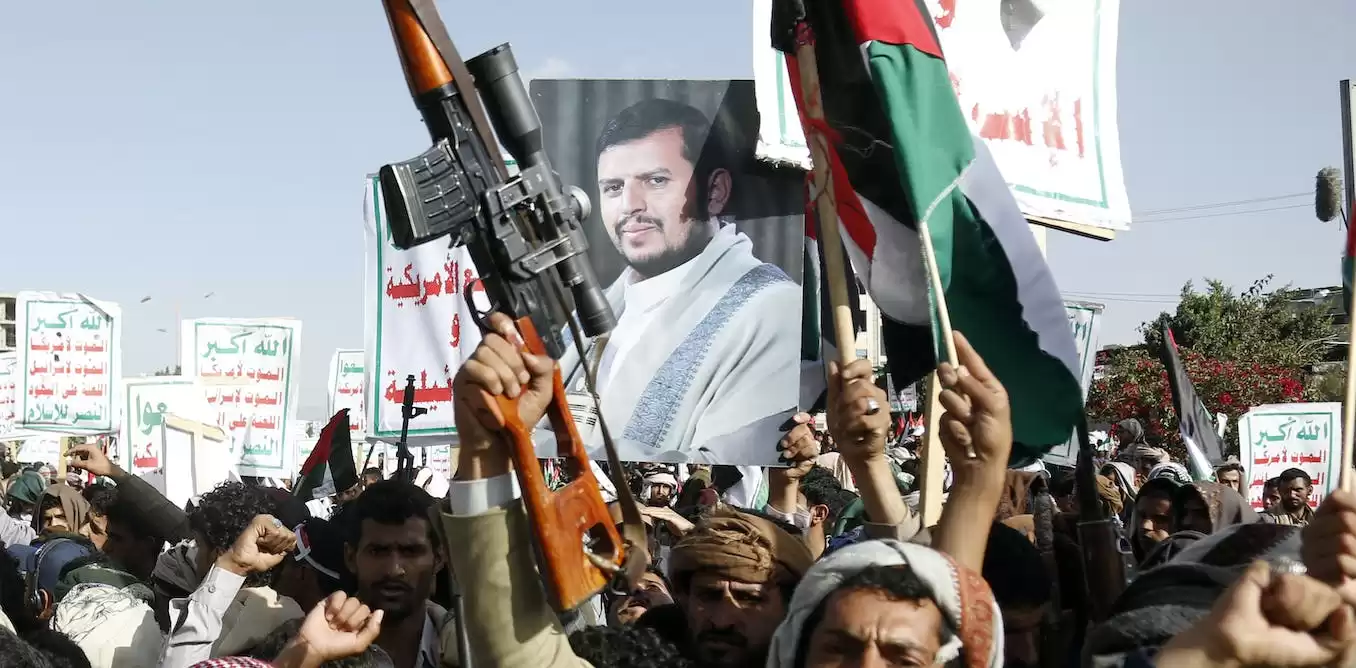How Houthi attacks impact Israel-Hamas conflict, Yemen's civil war, and potential US-Saudi Arabia pressure
Yemen's Houthi movement launched missiles and drones at Israel, raising concerns of a dangerous escalation in the Middle East conflict.
Yemen's Houthi movement has recently launched missiles and drones at Israel, sparking concerns of a dangerous escalation in the Middle East conflict. In response, Israel has sent missile boats to the Red Sea, joining U.S. warships already in the area. The Conversation U.S. spoke to Mahad Darar, a Yemeni politics expert at Colorado State University, to gain insight into the Houthis' involvement in the war and the potential risks it poses.
The Houthis, also known as Ansar Allah, are an armed militia of the Zaydi Shia sect in Yemen. They seized power in a 2014 coup, overthrowing Yemen's transitional government led by Abed Rabbo Mansour Hadi. Since then, they have been engaged in a civil war with the ousted administration, which is backed by Saudi Arabia. The Houthis currently control most of northern Yemen.
One possible motive behind the Houthi attack on Israel is their alliance with Iran. By showcasing their military capabilities, the Houthis aim to demonstrate their strength to both local and regional audiences. Some analysts suggest that Iran supplied the Houthis with long-range missiles to pose a threat to Israel and Saudi Arabia, its regional rival. However, the attack could also be a strategy to gain domestic support. By challenging Israel, the Houthis present themselves as a dominant force in Yemen, uniting the Yemeni public behind the cause of Palestinian liberation.
The Houthis aim to differentiate themselves from Arab governments that have not taken strong action against Israel. They want to present an alternative face to the Arab world, especially in contrast to Saudi Arabia, which had been seeking to normalize ties with Israel. It is worth noting that there is growing popular discontent in Arab countries over their governments' perceived weak stance on Israel, but public opinion has little influence on policy due to the authoritarian nature of these regimes.
Launching missiles and drones is relatively inexpensive for the Houthis, considering the potential benefits they may gain from such actions. However, it is important to recognize that the Houthis themselves operate a theocratic regime with no democratic values.
As for the impact on the Israel-Hamas conflict, some analysts suggest that a coordinated effort involving the Houthis, Hezbollah in Lebanon, and Hamas in the Gaza Strip could overwhelm Israel's defense systems. However, this scenario is unlikely due to the Houthis' limited missile capabilities compared to Hezbollah and Hamas. The imprecision of Houthi missiles also poses a risk to neighboring countries like Saudi Arabia, Egypt, and Jordan, as these projectiles could land in their territories and cause damage.
The Houthi attacks may benefit Israel by reinforcing the narrative that it is facing a multi-front war sponsored by Iran. This could escalate tensions between Iran, Israel, and the United States, potentially influencing U.S. foreign policy towards a more confrontational stance against Iran. On the other hand, the perceived threat from the Houthis gives Iran a negotiation card in wider regional disputes, such as the issue of Tehran's nuclear program. Iran wants to position itself as a country capable of wreaking havoc in the region through its proxies.
Contrary to other Iranian-backed groups, the Houthis have not targeted U.S. forces in the region. This suggests that the Houthis primarily serve their own interests rather than those of Iran. Unlike Hezbollah and Hamas, which focus on resisting Israeli occupation, the Houthis are primarily concerned with local issues within Yemen. However, they have recently aligned themselves with Iran due to their heavy reliance on Iranian weapons supplies.
In terms of the Yemen civil war, negotiations between the Houthis, Saudi Arabia, and the Saudi-led coalition backing the Yemeni government forces are at a delicate stage. The recent Houthi attacks have raised questions about the Saudis' response and their potential willingness to engage in diplomatic efforts with the Houthis and Iran. If Houthi missile attacks escalate, Saudi Arabia will face a difficult choice that could jeopardize diplomatic efforts. However, it is unlikely that they will risk shooting down the missiles, as it would further strain relations with the Houthis and Iran.












Comments on How Houthi attacks impact Israel-Hamas conflict, Yemen's civil war, and potential US-Saudi Arabia pressure